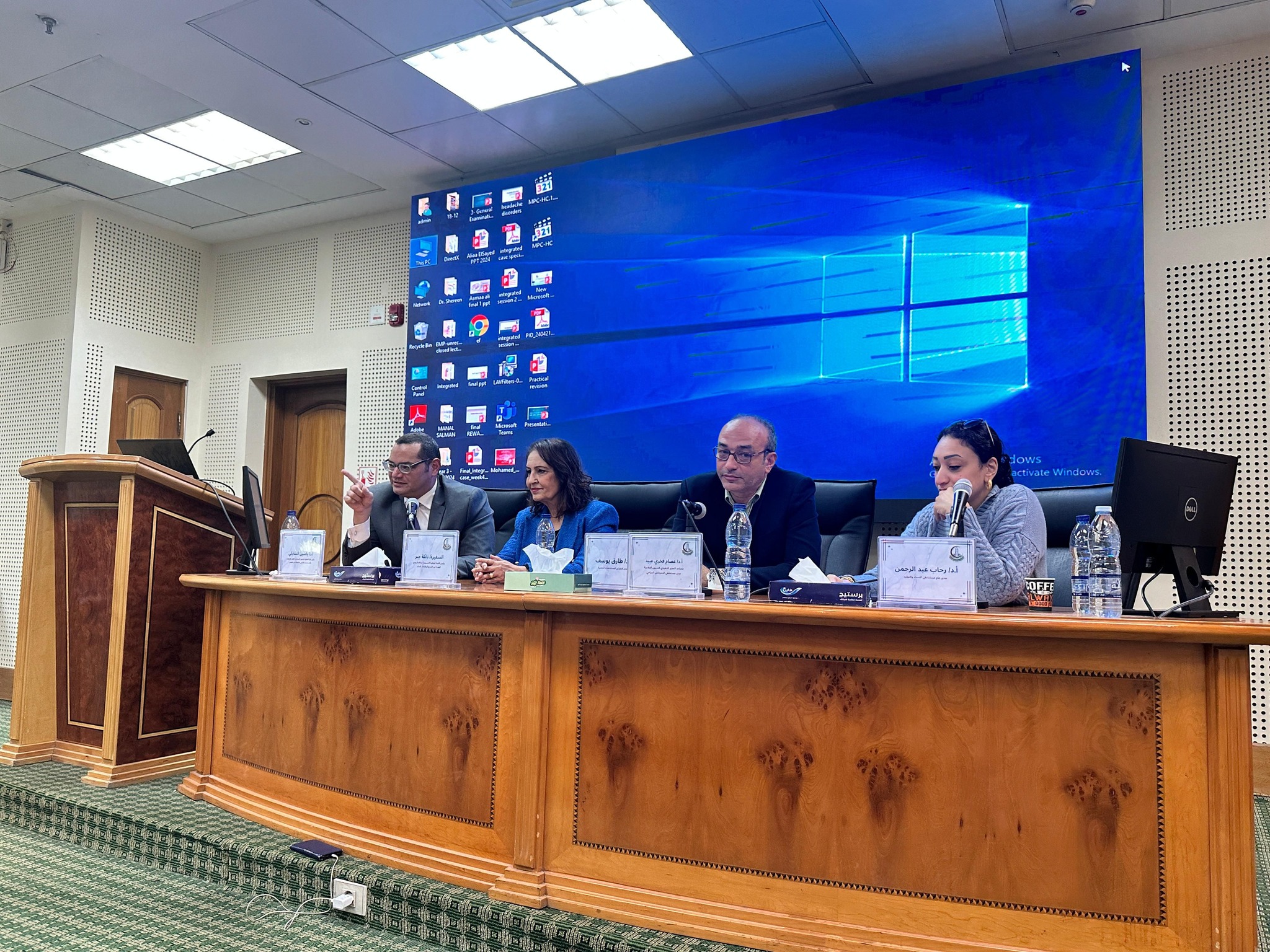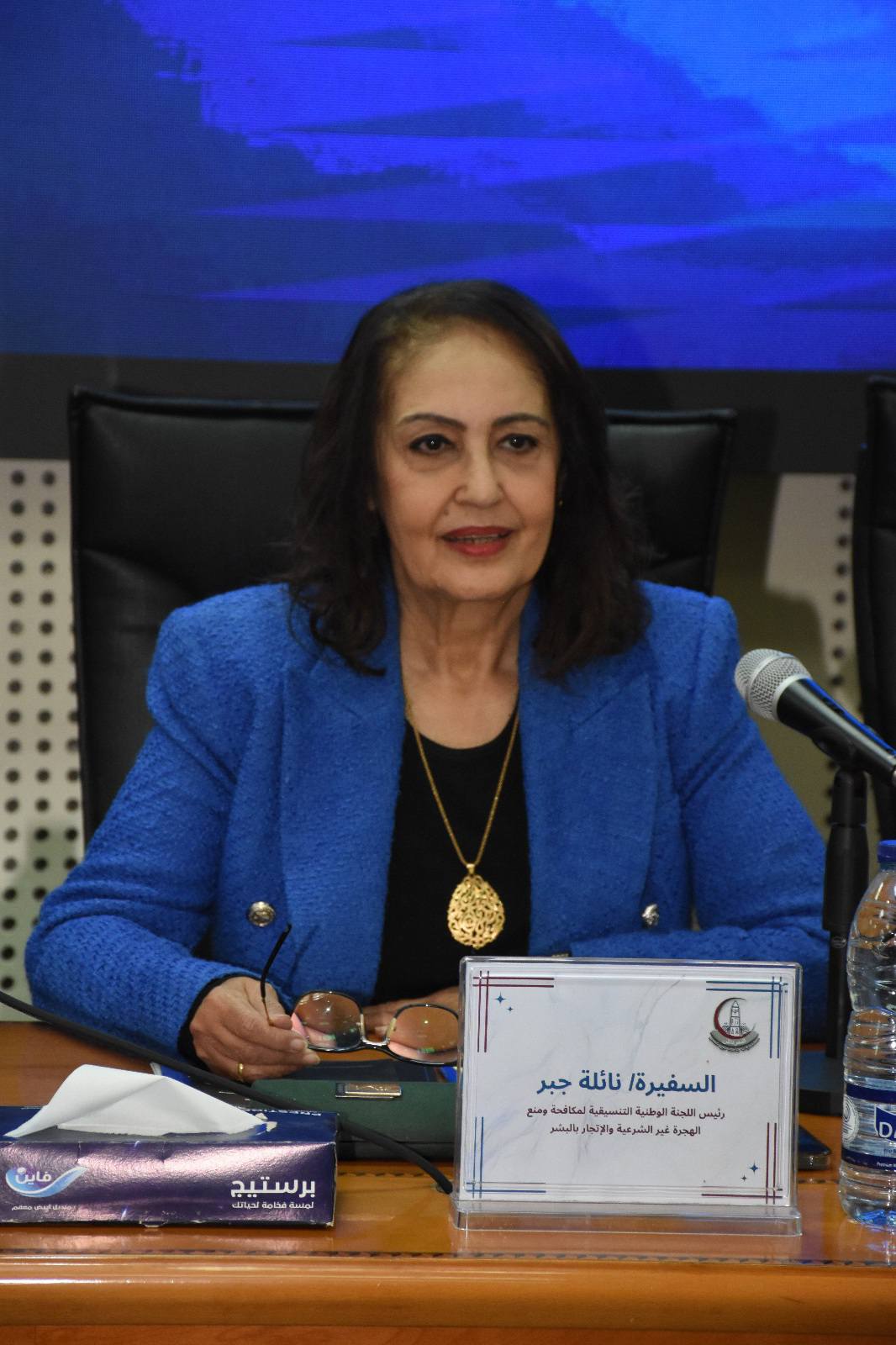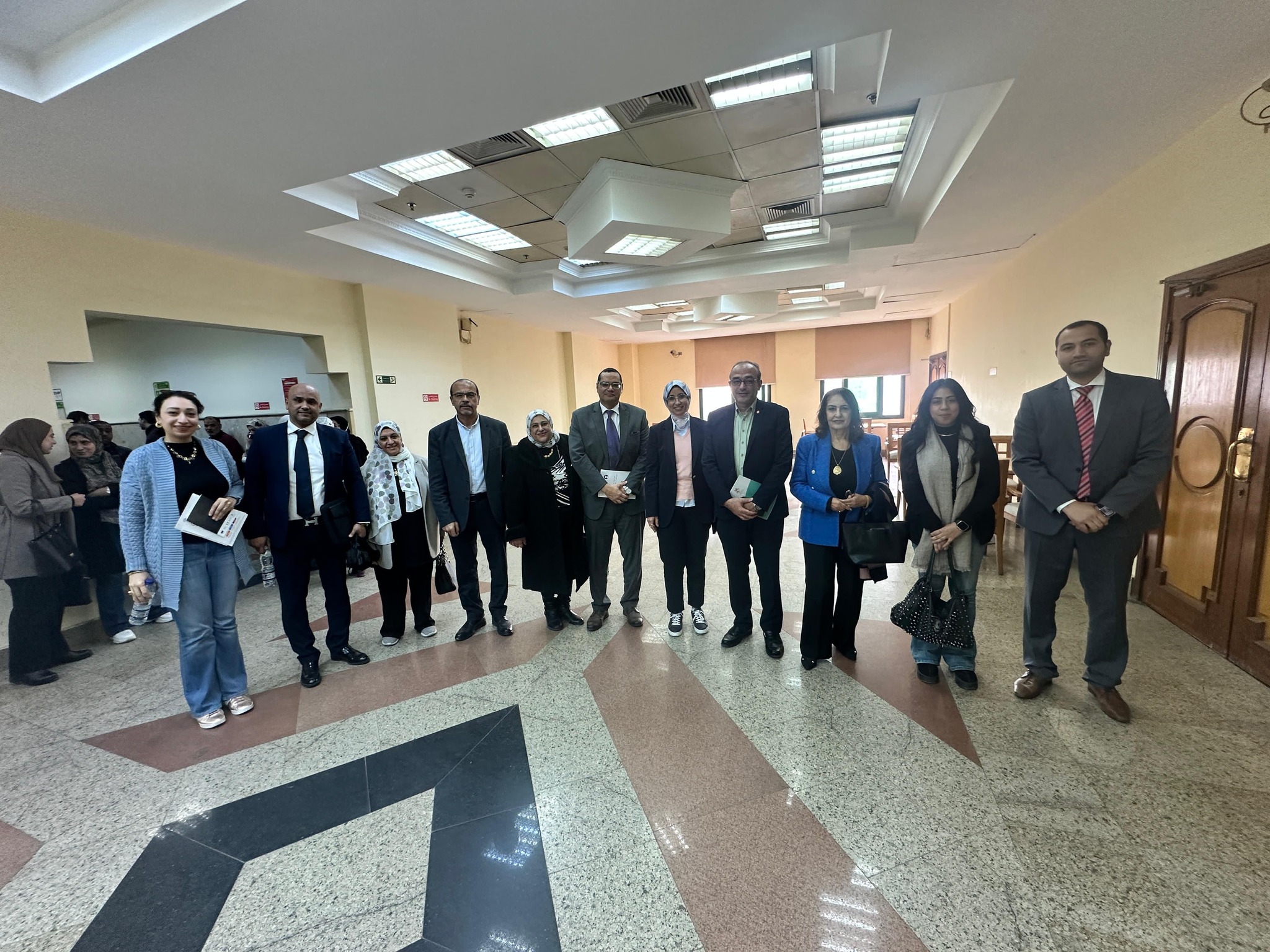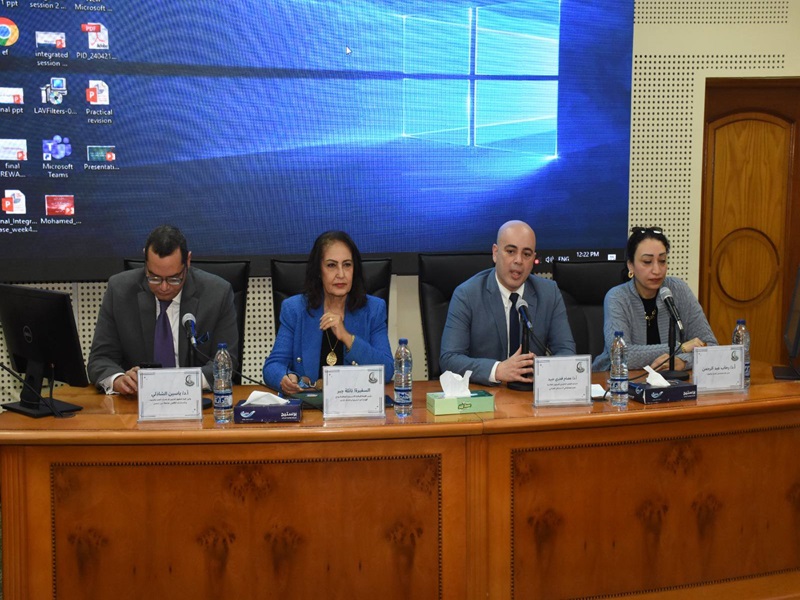An awareness symposium on human trafficking and illegal immigration at Ain Shams University Hospitals
Under the patronage of Prof. Mohamed Diaa Zain El-Abedeen, President of Ain Shams University, Prof. Ghada Farouk, Vice President for Community Service and Environmental Development, Prof. Ali Al-Anwar, Dean of the Faculty of Medicine, Prof. Tarek Youssef, Executive Director of the University Hospitals, and Prof. Yassin El-Shazly, Vice Dean of the Faculty of Law at the University, an awareness symposium entitled “The Role of the National Coordinating Committee for Preventing and Combating Illegal migration and Human Trafficking” was held at the Training Center at the hospitals yesterday, Wednesday.
The symposium aimed to introduce the medical staff at Ain Shams University Hospitals to the role and objectives of the National Committee, while shedding light on the forms of human trafficking and how to combat it.
The symposium was attended by Ambassador Naala Gabr, Head of the National Coordinating Committee for Combating and Preventing Illegal Immigration and Human Trafficking, who pointed out that the committee includes 30 ministries and national entities concerned with combating crime and protecting victims, stressing the importance of addressing the repercussions of political circumstances and natural disasters that lead to large waves of illegal immigration, which are sometimes exploited in human trafficking and organ trade.
 |
 |
 |
||
Ambassador Naila Gabr also stressed Egypt's commitment to international agreements related to combating human trafficking, including signing the international protocol in 2007, and mentioned forms of human trafficking such as transactional marriage, prostitution, and street children, calling for more efforts to combat these crimes.
Prof. Tarek Youssef, Executive Director of University Hospitals, stressed the continuation of work to improve and develop the organ donation and transplantation system within Ain Shams University Hospitals in accordance with legal requirements and ethics committees, as well as in accordance with the highest international standards, while ensuring the provision of all needs and infrastructure, in the presence of professors and consultants specialized in organ transplantation, which supports the contribution of this file in preserving the lives of patients, pointing out that organ donation will be an important legacy for future generations and a strong supporter of providing a decent and healthy life, stressing the continuation of holding workshops to raise awareness of the legal aspects of practicing the medical profession in all its aspects.
Prof. Yassin El-Shazly, Vice Dean of the Faculty of Law at Ain Shams University, praised the Faculty of Medicine for hosting the symposium, stressing that Egyptian doctors are the first line of defense for the human body. He added that the Egyptian legislator has set strict laws to protect the human body and prohibit dealing in any human organ or part thereof or any of its tissues by way of sale, purchase or for a fee, regardless of its nature, and it is not permissible for the transplantation of an organ or part thereof or any of its tissues to result in the donor or any of his heirs gaining any material or in-kind benefit from the recipient or his relatives.
Emphasizing the necessity for the Egyptian doctor to follow the requirements set by the legislator regarding organ trade, he also stressed the necessity for all hospitals to be subject to the Ethics Committee in order to prevent any unethical phenomenon regarding the transfer of human organs.
Prof. Essam Fakhry, Deputy Executive Director of Ain Shams University Hospitals for Therapeutic Affairs, stressed that organizing such awareness symposia reflects the commitment of university hospitals to their societal role in enhancing awareness of societal issues, pointing out the importance of concerted efforts among all to confront the phenomenon of human trafficking and illegal immigration, stressing that the hospitals will continue to organize more events that contribute to spreading awareness of vital issues that affect society.
Prof. Rehab Abdel Rahman, Director of the Obstetrics and Gynecology Hospital at Ain Shams University Hospitals, stressed that the doctor is the first line of defense against human trafficking, thanks to his role in providing correct health advice to patients.
She also pointed out the existence of a safe women unit at the women's hospital, in cooperation with the United Nations, to receive complaints from women who have been physically, psychologically, financially or sexually abused, with cases being referred to the National Council for Women and the National Council for Human Rights to obtain their rights.
The symposium witnessed a large attendance of medical cadres and faculty staff, and the participants praised the importance of the symposium in raising awareness of the dangers of illegal immigration and human trafficking, and the role of medical institutions in combating these phenomena.


.svg)

